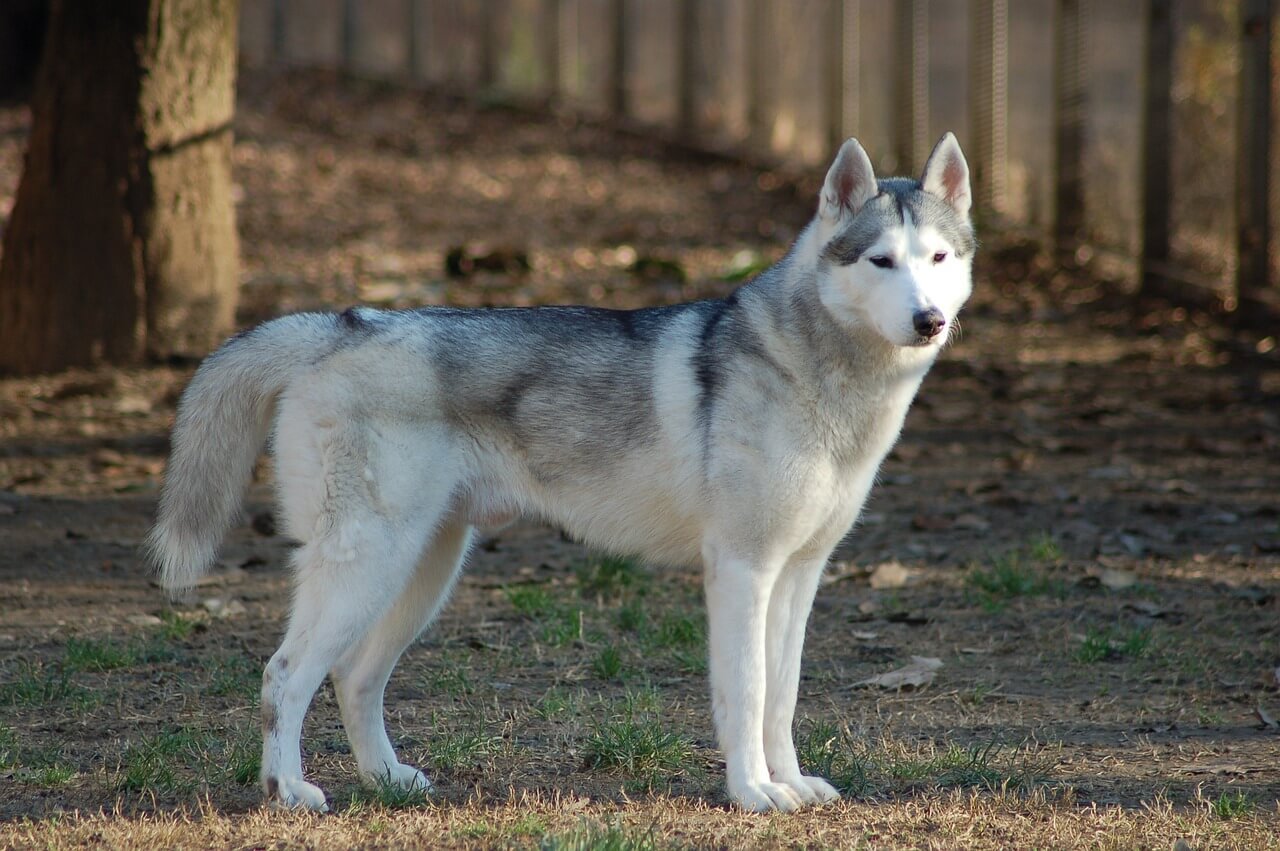Why Is My Dog Shaking After a Vaccine? Understanding the Causes and Solutions
As a pet owner, seeing your dog shake or tremble after receiving a vaccine can be alarming. Vaccinations are essential for protecting your furry friend from serious diseases, but it’s not uncommon for dogs to exhibit some side effects afterward. One of the most common concerns among pet parents is when their dog starts shaking after a vaccine. While this reaction might seem worrying, it’s often a normal part of the body’s response to the vaccination process.
In this blog post, we’ll explore why this happens, what you should do if your dog shakes after a shot, and how you can ensure their comfort during this time. By understanding the science behind vaccines and their potential side effects, you’ll be better equipped to care for your dog and provide them with the love and attention they need.
Common Reasons Why Dogs Shake After Vaccines
When your dog begins to shake after receiving a vaccine, it’s natural to wonder what’s causing this behavior. Let’s break down the most common reasons behind this phenomenon:
Mild Reaction to the Vaccine
Vaccines stimulate the immune system, and sometimes this stimulation can cause mild physical reactions, such as shaking or trembling.Stress or Anxiety
The vet visit itself can be stressful for some dogs. The unfamiliar environment, strange smells, and handling by strangers may lead to anxiety-induced shaking.Pain at the Injection Site
The injection site might feel sore or tender, which can cause discomfort and result in shaking as your dog tries to cope with the sensation.Fever or Elevated Body Temperature
Some dogs develop a slight fever after vaccination, which can make them feel unwell and lead to shaking or shivering.Normal Physiological Response
Shaking can also be a harmless physiological reaction as the body adjusts to the vaccine’s components.
While these causes are generally benign, it’s important to monitor your dog closely to ensure their symptoms don’t worsen. If the shaking persists or is accompanied by other concerning signs, it’s best to consult your veterinarian for advice.
How to Comfort Your Dog After Vaccination
Seeing your dog shake after a vaccine can tug at your heartstrings, but there are several ways you can help them feel more comfortable. Here’s what you can do:
Create a Calm Environment
Bring your dog to a quiet, familiar space where they can relax without distractions or stressors.Offer Gentle Affection
Petting or speaking softly to your dog can reassure them and help reduce anxiety.Provide Fresh Water
Ensure your dog has access to fresh water to stay hydrated, especially if they seem lethargic or unwell.Monitor Their Activity Level
Avoid strenuous exercise or play for the first 24 hours after vaccination to allow their body to recover.Use a Warm Blanket
Wrapping your dog in a soft, warm blanket can provide comfort and help ease any shivering caused by stress or mild discomfort.
By taking these steps, you can help your dog feel safe and supported as their body adjusts to the vaccine. Remember, patience and gentle care go a long way in ensuring a smooth recovery.
Check this guide 👉Why Does My Dog Bark When I Leave? Best 7 Expert Tips!
Check this guide 👉Why Do My Dogs Ears Stink? Best 7 Expert Tips!
Check this guide 👉Why Is My Dog Acting Scared? Best 7 Behavior Tips!

Signs of Normal Reaction | Signs of Serious Concern |
|---|---|
Mild shaking or trembling | Persistent shaking for over 24 hours |
Lethargy lasting a few hours | Difficulty breathing or wheezing |
Slight swelling at injection site | Swelling that worsens over time |
Reduced appetite for one meal | Refusal to eat or drink for a day |
Mild fever or warmth to the touch | Vomiting or diarrhea |
When to Seek Veterinary Advice
While shaking after a vaccine is often harmless, there are certain situations where professional guidance is necessary. Here’s when you should contact your vet:
Shaking Persists Beyond 24 Hours
If your dog continues to shake for more than a day, it could indicate an adverse reaction.Difficulty Breathing
Labored breathing or wheezing is a serious symptom that requires immediate attention.Severe Lethargy
If your dog seems unusually weak or unresponsive, it’s time to consult your veterinarian.Swelling or Redness Worsens
Any significant increase in swelling or redness around the injection site should not be ignored.Vomiting or Diarrhea
Gastrointestinal issues following vaccination can signal a more severe reaction.
Prompt action can make all the difference in ensuring your dog’s health and well-being. Trust your instincts—if something feels off, don’t hesitate to reach out to your vet.
Tips for Minimizing Stress During Vet Visits
Reducing your dog’s stress levels before and during vet visits can help minimize reactions like shaking after a vaccine. Here are some practical tips:
Practice Positive Reinforcement
Reward your dog with treats or praise during and after vet visits to create positive associations.Bring Familiar Items
A favorite toy or blanket can provide comfort and familiarity in an unfamiliar setting.Arrive Early to Avoid Rush
Arriving early gives your dog time to acclimate to the environment without feeling rushed.Stay Calm Yourself
Dogs pick up on their owner’s emotions, so staying calm can help keep them relaxed.Schedule Routine Check-Ups
Regular vet visits can help your dog become more accustomed to the experience over time.
By incorporating these strategies, you can make vet visits less stressful for your dog and potentially reduce post-vaccine reactions like shaking.
What Happens During and After Vaccination?
Vaccines are designed to stimulate your dog’s immune system, but this process can sometimes lead to mild side effects. Here’s a breakdown of what occurs during and after vaccination:
Immune System Activation
The vaccine introduces a harmless version of the disease, prompting the immune system to create antibodies.Temporary Discomfort
As the immune system responds, your dog may experience mild discomfort or fatigue.Injection Site Reaction
Localized swelling or soreness at the injection site is common and usually resolves within a day or two.Body Adjustment Period
Your dog’s body needs time to adapt to the vaccine, which can result in behaviors like shaking or restlessness.Protection Against Diseases
Despite temporary side effects, vaccines provide long-term immunity against potentially life-threatening illnesses.
Understanding these steps can help you anticipate your dog’s response to vaccines and recognize what’s normal versus what might require attention.
Why Hydration and Nutrition Matter Post-Vaccine
After vaccination, your dog’s body works hard to build immunity, making proper hydration and nutrition essential for recovery. Here’s how you can support them:
Encourage Water Intake
Offer fresh water frequently to prevent dehydration, especially if your dog seems lethargic or unwell.Provide Small, Easily Digestible Meals
If your dog’s appetite is reduced, offer small portions of bland food like boiled chicken or rice.Avoid Heavy Treats
Stick to light snacks or avoid treats altogether until your dog’s energy levels return to normal.Monitor Eating Habits
Keep an eye on whether your dog is eating and drinking normally, as refusal could indicate a more serious issue.Create a Comfortable Feeding Environment
Feed your dog in a quiet, stress-free area to encourage them to eat without distractions.
By focusing on hydration and nutrition, you can help your dog recover faster and feel more comfortable after their vaccination.
How to Prepare Your Dog for Future Appointments
Building trust and reducing anxiety before vet visits can minimize stress-related reactions like shaking after vaccines. Here’s how you can prepare:
Practice Handling Exercises
Gently handle your dog’s paws, ears, and body to get them accustomed to being touched during exams.Simulate the Vet Visit Experience
Use a stethoscope or other tools at home to mimic what happens during a check-up.Introduce Car Rides Gradually
Take short, positive car trips to help your dog associate travel with fun experiences rather than stress.Reward Calm Behavior
Praise and reward your dog when they remain calm during mock vet scenarios or real appointments.Communicate with Your Vet
Share any concerns about your dog’s anxiety so the vet can take steps to make the visit smoother.
Preparing your dog in advance can significantly reduce their stress levels and help them feel more relaxed during future vet visits.
FAQ
Is it normal for my dog to shake after a vaccine?
Yes, mild shaking is a common and usually harmless reaction to vaccines. However, monitor your dog for any unusual symptoms.
How long does shaking typically last after a vaccine?
Shaking usually subsides within a few hours to a day. If it persists beyond 24 hours, consult your vet.
Can I give my dog pain relief after a vaccine?
Always consult your veterinarian before giving any medication, including pain relief, to your dog.
Should I avoid future vaccines if my dog reacts poorly?
Not necessarily. Discuss your concerns with your vet, who can tailor a vaccination plan to suit your dog’s needs.
What are the signs of a serious vaccine reaction?
Signs include persistent shaking, difficulty breathing, severe lethargy, worsening swelling, and vomiting or diarrhea.
Final Thoughts: Caring for Your Dog After Vaccination
Vaccines are a vital tool in keeping your dog healthy and protected from preventable diseases. While shaking after a vaccine can be unsettling, it’s often a temporary and manageable side effect. By understanding the possible causes and knowing how to comfort your dog, you can ensure their recovery is as smooth as possible. Remember to stay vigilant and seek veterinary advice if you notice any signs of a serious reaction. With your love and care, your dog will bounce back quickly and continue to thrive. Stay informed, stay patient, and cherish every moment with your furry companion—they’re counting on you!
Do Cats Have Taste Buds? Best 7 Expert Tips! – Discover how cats experience flavors and why their taste is so unique.
Do Dogs Have Taste Buds? Best 7 Expert Tips! – Discover how dogs experience taste, their preferences, and what it means for their diet and health.
Can Cats Taste Sweet? Best 7 Expert Tips! – Discover why cats can’t taste sweetness, how it affects their diet, and tips to keep them healthy and happy.
Can Dogs Taste Sweet? Best 7 Expert Tips! – Discover how dogs perceive sweetness, which foods are safe, and tips to manage their sweet cravings responsibly.





